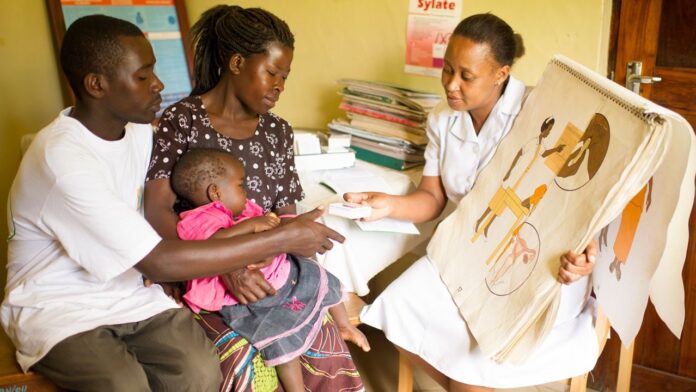Alhaji Sani Umar-Jabbi, the District Head of Gagi in Sokoto South Local Government Area in Sokoto state, has called on Nigerians to champion the family planing awareness and other activities as a way to enhance statistical data and population growth.
Umar-Jabbi made the call in an interview with the Newsmen part of the commemoration of World Population Day (WPD) on Friday in Sokoto.
He described this year’s theme for WPD 2025 which is “Empowering young people to create the families they want in a fair and hopeful world”. As apt and timely.
He said credible and up-to-date population data, would surely support Nigeria to ensure provision of quality services and reliably dispute unfavourable development statistics from institutions.
He highlighted that good data would ensure equitable access to quality education and healthcare services as well as facilitate designing of proper policies in all sectors.
According to him, Nigerians needs to understand that family planning is beyond birth control or spacing pregnancies, it should be considered as reproductive rights, choice and women empowerment at all levels.
He further explained that achieving sustainable development in Nigeria requires prioritising reproductive rights, gender equality, and accurate population data.
” There is need to obtain dependable data to be available at statutory institutions such as National Population Commission (NPC) which shall be conducting census along with routine birth and death registration,” he said.
He urged governments and policymakers to increased investment on reproductive health services, including access to contraception, skilled birth attendants, and health education.
Umar-Jabbi called for sustained advocacy for integrating comprehensive sexuality education into school curricula and ensure rural and underserved communities are not left behind in health outreach programmes.
In a separate interview, Dr Auwal Musa, a Youth leader and analyst, stressed that achieving gender equality and empowering women and girls should be mandatory in order to obtain essential economic growth, social stability, and environmental resilience.
Musa narrated that girls should have uninterrupted access to quality education and protected from early marriage and all forms of gender-based violence.
He said women should be encouraged to participate in decision-making at home, community and at all levels.
The said population data ensures equitable resource distribution and the formulation of policies that genuinely address the needs and aspirations of the nation.
Malam Rabi’u Gandi from Save The Child Initiative (STCI), underscored the significance of World Population Day and called for urgent need for policies addressing family planning, gender equality, poverty, maternal health, and sustainable development.
Gandi urged for advocacies that served to address these inequities to promote population data gathering as well as improving maternal and child health.
He emphasised the need for leaders to prioritise young people’s needs and voices by ensuring that youths have the rights, tools, and opportunities to shape their futures.
A 24-year-old father, Malam Bello Buhari, said he and his wife have agreed to limit births due to the good understanding obtained during sensitization campaigns and assured to promote the knowledge to others.
Buhari.explained that importance of family planning have broder perspectives from health, education and economic benefits by individual, group and nation.at large.
The Newsmen reports that DevComs in conjunction with The Challenge Initiative (TCI) Nigeria have called on policymakers, civil society, donors, and the media to step up efforts and investment in youth’s health and wellbeing.
The appeal was contained in a statement and organizations called for enabling access to accurate sexual and reproductive health (SRH) information and services is critical to achieving inclusive development outcomes.
Newsmen reports that World Population Day, established by the UN and first observed in 1989, is observed annually on July 11 to enhance awareness of population trends, including the impact on a large array of development challenges.




